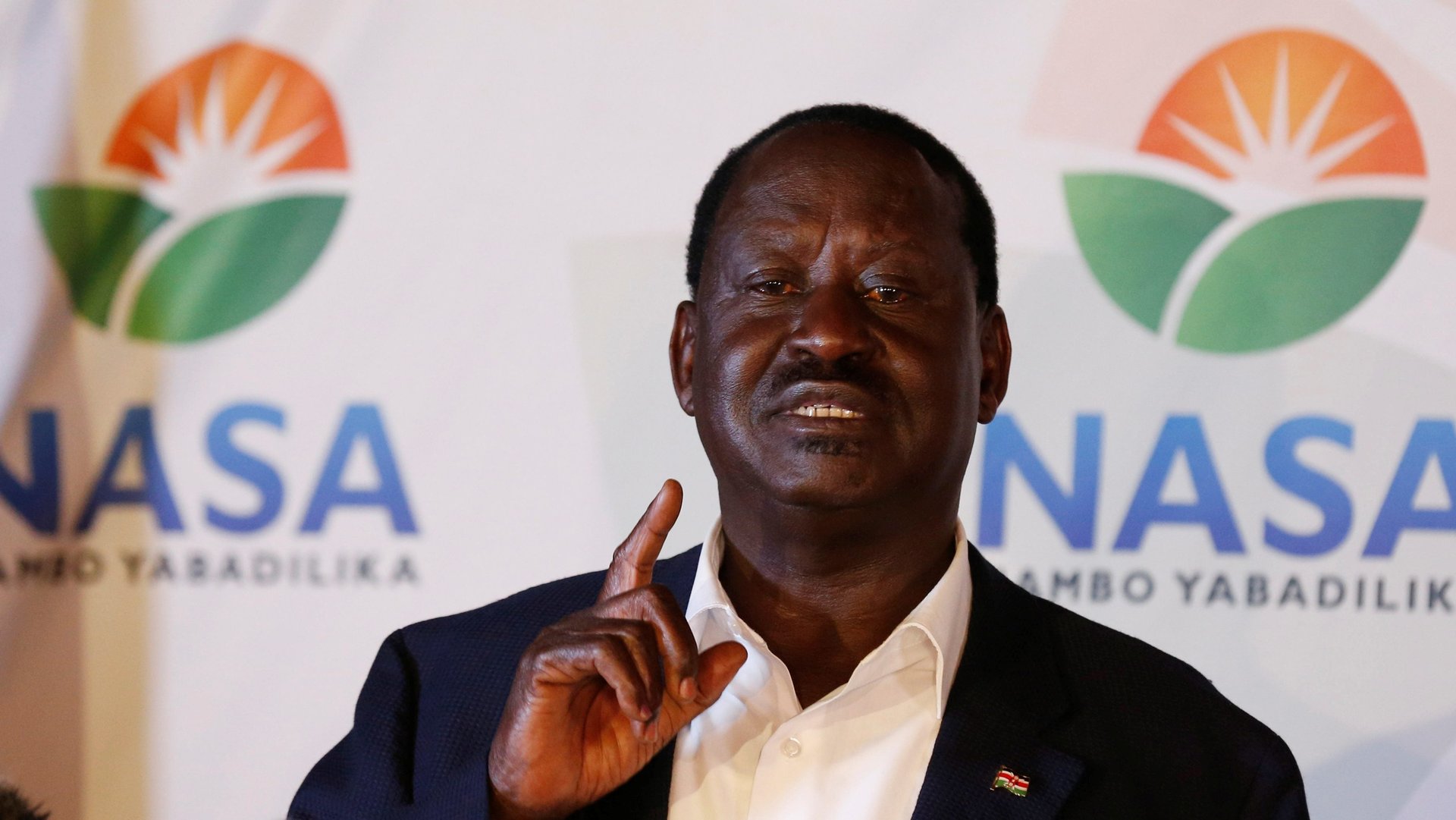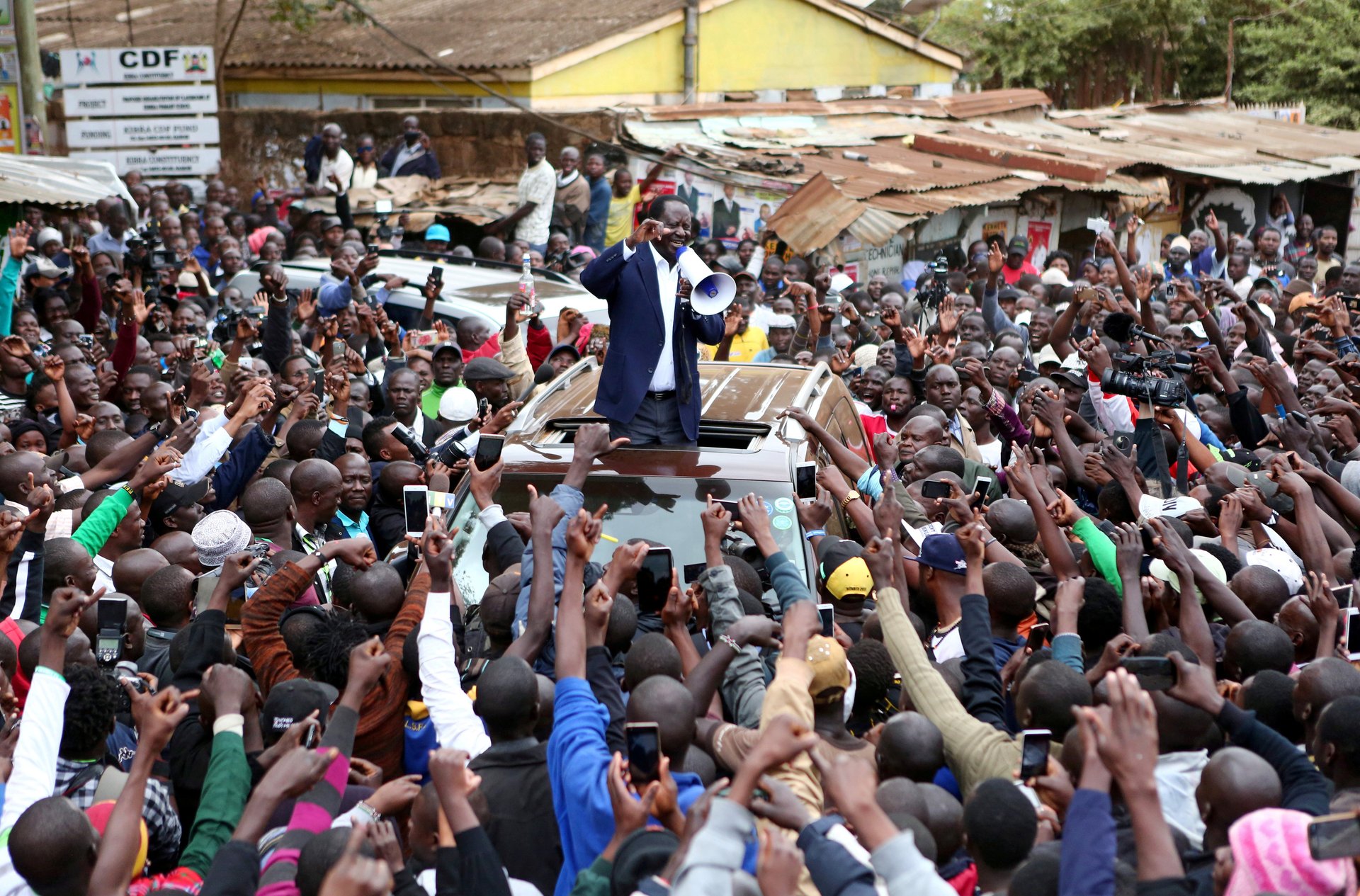Kenya’s president has a clear lead in votes counted so far, but the opposition says it’s “fake”
Kenya’s opposition candidate Raila Odinga has said that hackers gained entry into the electoral database, creating errors and introducing algorithms that tampered with the election results. Odinga also said that the partial results of the general election were “a fraud” and termed the hacking as an “attack on our democracy.”


Kenya’s opposition candidate Raila Odinga has said that hackers gained entry into the electoral database, creating errors and introducing algorithms that tampered with the election results. Odinga also said that the partial results of the general election were “a fraud” and termed the hacking as an “attack on our democracy.”
Earlier in the day, in a press conference held just after 2 am local time, Odinga said he “rejected the results streamed so far” because they weren’t accompanied by Form 34A, the form used to tabulate the results of the presidential elections.
“These results are fictitious. They are all fake,” Odinga said.
More than 19.6 million Kenyans went to the polls on Tuesday (Aug. 8) to vote in one of the country’s most contested general elections. As of 7 am Wednesday, president Uhuru Kenyatta was leading with over 1.3 million votes in total. With 85% of the polling stations counted, Kenyatta had 7,163,684 over Odinga’s 5,794,443 votes. A record 332,000 votes were also listed by the Independent Electoral and Boundaries Commission (IEBC) as rejected votes—in contrast to the 108,975 spoilt votes from 2013. President Kenyatta had also won the majority of the cast votes in the diaspora, winning in South Africa, Uganda, and Rwanda while Odinga won in Burundi and Tanzania.
The IEBC is expected to comment on the dispute in the next few hours.
Odinga said that the NASA coalition was concerned about how the results were streaming in and had no way of verifying them. Odinga had in the past said that the only way the ruling party could win the election was by rigging the results. “IEBC has just said that no parties have disputed the results. How do parties dispute results which they do not even know their origins? Only Form 34A discloses the origins of results,” Odinga said.
Kenyatta’s Jubilee party immediately responded saying they had not heard any complaints from agents while the results were being relayed. They also said they didn’t receive any evidence showing that the results had been altered or tampered with. Raphael Tuju, the party’s secretary general said that Odinga’s coalition should respect electoral rules and raise any disputes with the electoral commission. “You can’t make laws as you go on,” Tuju said.

The Tuesday polls went smoothly except in some counties where heavy rains hampered the process of voting. For the first time in Kenya’s history, prisoners and members of the Makonde community—who were recognized after 80 years in the country—were also given the privilege of exercising their democratic right.
There were also delays in opening polling stations, and some trouble switching on or using the electronic voting system kits. However, the commission said that it had replaced some of the kits and instructed officers to manually key in voter ID numbers to confirm registration.
Wafula Chebukati, the chairperson of IEBC, said the successful use of the system facilitated an efficient voter and candidate registration, besides voter verification and results transmission. In 2013, the electronic voting system failed, causing widespread anxiety about the credibility of the election.
“This is a watershed moment in the history of election management in the Republic of Kenya,” Chebukati said.
In 2013, Odinga, alleging widespread ballot rigging, challenged his election loss in court. Hasnain Malik, head of equities research at Exotix Capital, an investment bank focused on emerging markets, says Odinga’s next move will be crucial for Kenya’s economic and political reality. “The most important issues are ahead of us: Does Odinga concede peacefully? His initial rhetoric suggests there is a risk he does not.”